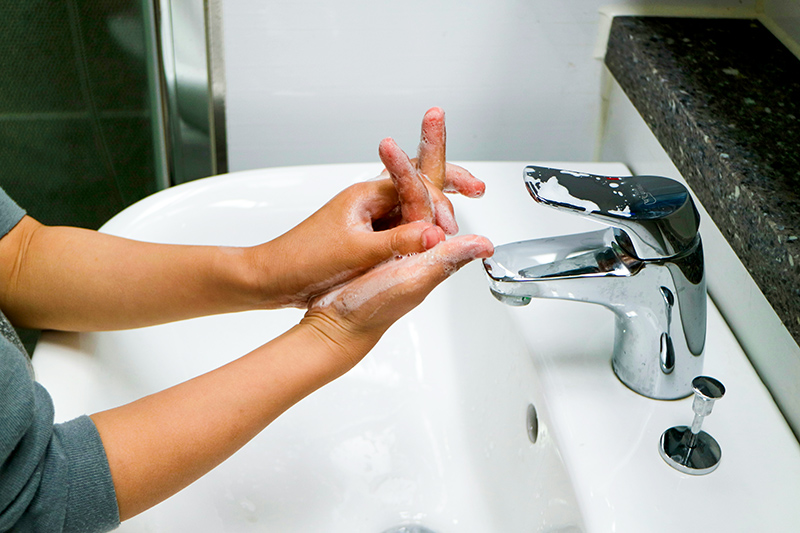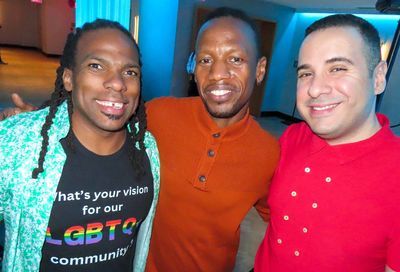New York passes Gender Recognition Act, a comprehensive pro-LGBTQ law
Legislation offers a nonbinary gender marker option on state IDs, and streamlines process for changing information on vital documents.

Late last month, New York Gov. Andrew Cuomo (D) signed the Gender Recognition Act, a comprehensive pro-LGBTQ law that, among other things, makes it easier for transgender people to obtain accurate identity documents, including a gender-neutral “X” option on licenses and IDs.
The law, sponsored by Assemblymember Danny O’Donnell (D-Manhattan), not only grants the option of a third gender marker on state IDs, but streamlines the process for changing state IDs or birth certificates by allowing people to update their gender markers through self-attestation, rather than submitting a doctor’s note attesting that they’ve undergone a gender transition, or providing proof of gender confirmation surgery.
The bill also eliminates the requirement that transgender and gender-nonconforming people must publish any proposed name or gender marker changes in a newspaper of record. It allows LGBTQ parents to change the designation of “mother” or “father” to “parent” on their children’s birth certificates. And it allows minors, with parental permission, to have their own names and gender markers changed on their birth certificates.
Under the bill, courts can issue orders allowing people who were born out of state to change their gender or name on their original birth certificates, and can require public and private entities to comply with orders to update vital documents or other records.
“The trans community has faced horrible discrimination for a very, very long time, and horrible violence for a long time. And part of that comes from the fact that their documentation doesn’t match their appearance,” O’Donnell told Metro Weekly in an interview.
“So if you’re going into a bar or restaurant and your ID says you’re a male, but you look like a female, that creates problems, and often, violence. So it’s important that we give people the opportunity to rectify that.”
O’Donnell said that eliminating the outdated publication requirement — given that people don’t get all their information from newspapers, and any background search can be performed online — is important, as it reduces the number of obstacles that face transgender people and those who identify outside of the gender binary.
Eliminating the need for a court-ordered medical examination, which he called “dehumanizing,” makes it easier to change one’s documentation and further reduces barriers to recognizing people’s true identities.
“When marriage equality passed — which I wrote in New York — I knew a backlash was coming and I suspected it would be on the backs of the trans community. I was surprised when I learned that it was about bathrooms,” O’Donnell said. “So last year we passed a bill that was fairly simple, which said that if the bathroom locks, anyone is allowed to use it, because people were literally getting beat up because they walked out of the room that says ‘M’ or ‘W’ on it. So gender-neutral bathrooms are required if there’s only one stall in it. That is all part of the acknowledgment that trans people exist in our society and they are entitled to full protection.”
He said he hopes that New York’s law will encourage other states to follow suit in ensuring transgender people can obtain accurate IDs and vital documents.
See also: U.S. State Department announces it will issue gender-neutral passports
The passage of the Gender Recognition Act comes following two lawsuits lodged against the state of New York by the LGBTQ legal firm Lambda Legal last year. In the first case, a transgender boy born in Ithaca but currently residing in Houston, sued to change the gender marker on his birth certificate; in the second, a nonbinary transgender New Yorker sued over the lack of an “X” gender marker on their state IDs.
In response to the first lawsuit, New York announced in March 2020, two months after the complaint was filed, that the state would be lifting its restriction on gender marker changes for transgender minors. In response to the second, the state announced, through court filings, that it intended to issue licenses with a nonbinary gender marker option in the next few years.
Ethan Rice, a senior attorney with Lambda Legal’s Fair Court Project, praised the act’s signature into law, noting that it achieves the changes that the organization had requested in both lawsuits.
“Lambda Legal applauds the passage of the Gender Recognition Act, an important and long-awaited bill we have strongly supported for years,” Rice said in a statement. “We helped to draft an initial version of this bill, that updates the protocols around correcting identity documents for transgender and nonbinary New Yorkers in order to help them navigate life without having to fear or risk discrimination and harassment.”
According to the U.S. Transgender Survey, 88% of transgender New Yorkers have not been able to update all of their identity documents, and 63% have not been able to update any of their identity documents, putting them at higher risk of discrimination or harassment.

Charlie Arrowood, counsel for Transgender Legal Defense & Education Fund’s Name Change Project, which was one of several LGBTQ, legal, and civil rights organizations who identified the problems transgender individuals have in obtaining accurate documentation and pushed for the changes contained in O’Donnell’s bill, said in a statement that the organization was “elated” to see Cuomo sign the measure into law.
“Having accurate ID documents that reflect who you are is critical for the health and safety of transgender and nonbinary New Yorkers,” Arrowood said in a statement.
“This bill is not just about securing documents that reflect our identities as transgender, nonbinary, or intersex people, it’s about securing our safety, our housing, our education, our health — in all the situations and places where that little ID card or scrap of paper is between us and what we need to survive and thrive,” Eòghann Renfroe, the policy and communications manager for the Empire Justice Center, said in a statement. “This legislation can serve as a model for other states looking to protect and support their transgender and nonbinary communities.”
“Each and every New Yorker should be recognized for who they are by their government,” State Sen. Brad Hoylman (D-Manhattan), who sponsored the companion bill to O’Donnell’s legislation in the state’s upper chamber, said in a statement. “But today, it remains incredibly hard for many New Yorkers to get the identification documents they require for travel, to get a job, and even to go to school. This bill will change that, making it easier for gender non-conforming, transgender, nonbinary, and intersex New Yorkers — including minors — to get IDs that accurately reflect their identity.
“I am thankful for the advocates in those communities for their input on this critical bill,” Hoylman added. “And I’m proud to live in and represent a state that respects and values the needs of these communities — particularly as queer, and especially transgender people, have come under attack in recent months across our country.”
See also:
Hungary passes law banning schools and media from talking about LGBTQ people
Brazilian gay man gang-raped, forced to carve anti-gay slurs into body in ‘barbaric’ attack
Colorado city’s Pride flags removed and replaced with Confederate flag
Support Metro Weekly’s Journalism
These are challenging times for news organizations. And yet it’s crucial we stay active and provide vital resources and information to both our local readers and the world. So won’t you please take a moment and consider supporting Metro Weekly with a membership? For as little as $5 a month, you can help ensure Metro Weekly magazine and MetroWeekly.com remain free, viable resources as we provide the best, most diverse, culturally-resonant LGBTQ coverage in both the D.C. region and around the world. Memberships come with exclusive perks and discounts, your own personal digital delivery of each week’s magazine (and an archive), access to our Member's Lounge when it launches this fall, and exclusive members-only items like Metro Weekly Membership Mugs and Tote Bags! Check out all our membership levels here and please join us today!

























You must be logged in to post a comment.